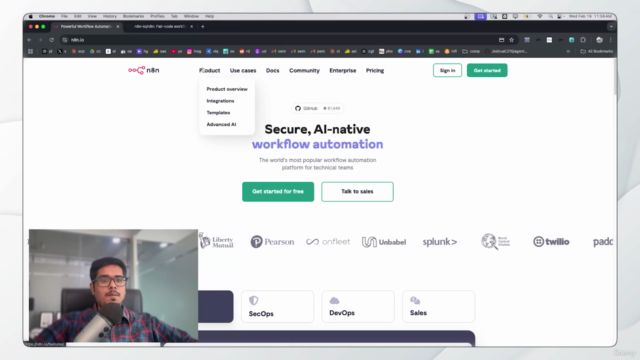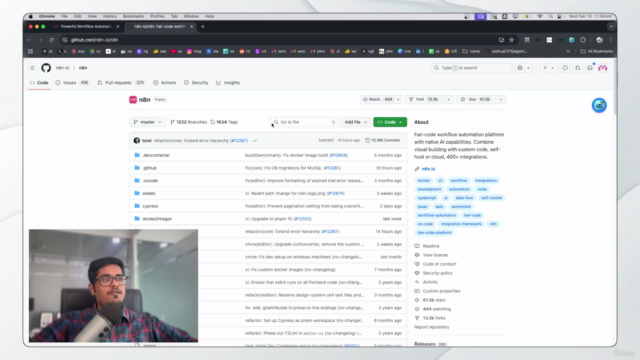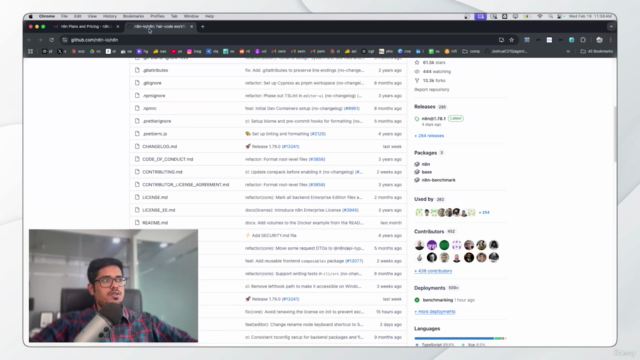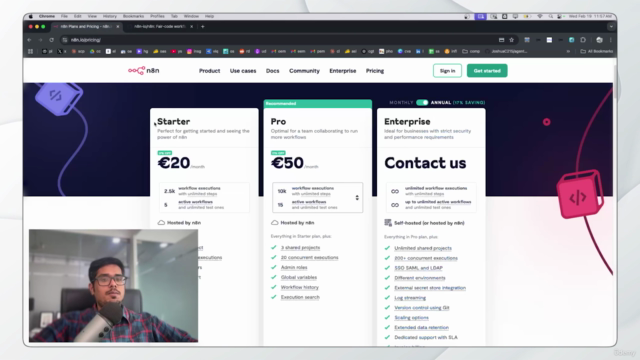Intro to N8N Agents: Automate Work Effortlessly

Why take this course?
Based on the provided course outline, here is a structured syllabus for an online course focused on n8n workflows and templates, as well as self-hosting. The course is designed to take learners from the basics of understanding what n8n is to creating, customizing, and hosting their own n8n workflows.
Course Title: Mastering n8n Workflows and Templates: From Basics to Self-Hosting
Course Duration: X weeks (4-6 hours per week)
Target Audience: Course participants should have a basic understanding of web technologies, automation principles, and some programming/scripting knowledge.
Course Syllabus:
Week 1: Introduction to n8n
- Lecture 1: What is n8n? Overview of its features and capabilities.
- Lecture 2: Understanding nodes, workflows, and data passing in n8n.
- Hands-on Exercise: Creating a simple manual workflow.
Week 2: Exploring n8n Templates
- Lecture 3: The role of templates in n8n.
- Lecture 4: Finding and importing n8n templates from the library.
- Project Assignment: Customizing a template for specific use cases.
Week 3: Advanced Workflows and Templates
- Lecture 5: Designing complex workflows with multiple nodes and branches.
- Lecture 6: An in-depth analysis of the "Social Media Trend Finder <> Discord Notifier" template.
- Project Assignment: Template customization focused on modifying keywords, notification format, and adding filtering criteria.
Week 4: Diving into n8n's Output Layer
- Lecture 7: Configuring outputs like email, notifications, databases, and more.
- Hands-on Exercise: Enhancing the functionality of an existing workflow with custom output formats.
- Tutorial: Best practices for testing and debugging outputs.
Week 5: Self-hosting n8n
- Lecture 8: Why and how to self-host n8n.
- Lecture 9: A step-by-step guide on installing n8n on your local machine (Windows, Mac, Linux).
- Setup Exercise: Installing n8n locally, verifying installation, and importing a template.
Week 6: Advanced Self-hosting and Template Management
- Lecture 10: Adapting cloud templates for local use, managing credentials securely, and understanding the differences.
- Lecture 11: Importing custom templates, backing up workflows, and updating your self-hosted instance.
- Project Assignment: Full setup of a local n8n instance with a custom template, including configuration tasks for customization and documentation.
Week 7: Troubleshooting, Optimization, and Best Practices
- Lecture 12: Common issues with n8n and their solutions.
- Lecture 13: Performance tuning and optimization tips for your n8n workflows and self-hosted server.
- Hands-on Exercise: Troubleshooting a provided workflow on a local setup.
Week 8: Final Project and Course Wrap-up
- Project Assignment: Design, implement, and test a comprehensive n8n solution that incorporates everything learned in the course.
- Final Review: Best practices for documentation, code comments, and sharing workflows with the community.
- Course Conclusion: Recap of key learning points and next steps for further development.
Assessment and Certification:
- Throughout the course, participants will be assessed through hands-on exercises, project assignments, and a final comprehensive project that demonstrates their understanding of n8n workflows and templates.
- Upon successful completion of all assignments and the final project, students will receive a certificate of completion or badge indicating mastery of n8n workflows and templates.
This syllabus provides a comprehensive roadmap for the course, ensuring that participants gain both theoretical knowledge and practical experience with n8n. The course is structured to gradually introduce new concepts and build upon them, culminating in the ability to independently create, customize, and host n8n workflows.
Course Gallery




Loading charts...